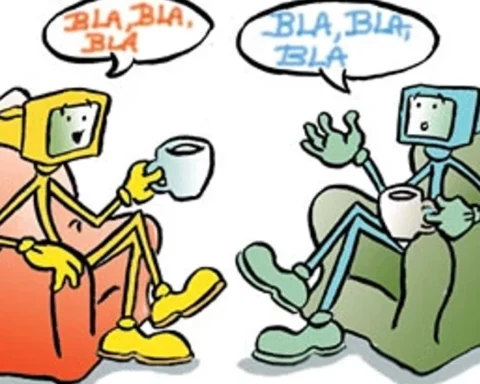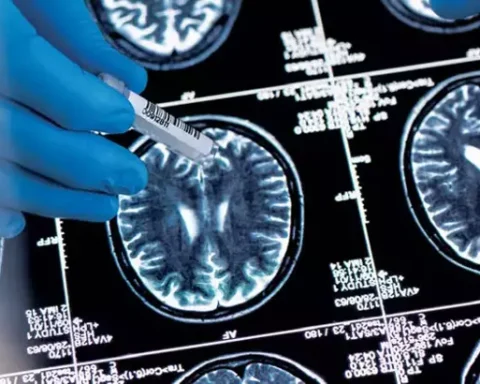In the hope of further clarifying the relationship between the state and individual psychology, let us walk a new path—this time by exploring what authority and anti-authority are.
What is authority?
Hans Georg Gadamer, a disciple of Heidegger, is not concerned solely with the problems caused by modernity’s relegation of practical reason—and with it, morality and politics—to the background. He advances Heidegger’s theses on the hermeneutic circle and the determinacy of tradition to such an extent that he adopts a stance which, under the name of a “hermeneutics of tradition,” legitimizes prejudice and authority, and earns him the label of a “reactionary enemy of Enlightenment and science.” A good reading of Gadamer will easily grasp the injustice in this labeling; however, the same Gadamer who says “History does not belong to us; on the contrary, we belong to it. Long before we understand ourselves through the process of self-examination, we understand ourselves clearly within the family, society, and state in which we live. The individual’s self-recognition vibrates within the vicious circle of historical life,” will not conceal that he draws his linguistic and conceptual materials from Hegel’s systematic context.
Gadamer legitimizes authority and the state together with historical consciousness and tradition. Although he does not deny his connection to the Hegelian heritage, his lack of intense engagement with political philosophy has led him to insufficiently emphasize his commonality with Hegel’s view of the state, and thus we have not been able to benefit much from him in the relationship between “practical reason” and the state. However, the connection between Aristotle—whom Gadamer assigns fundamental importance to and who sees the source of morality in practical reason and defines the human as a “political animal”—and Hegel’s rooting of the state in “objective morality” (Sittlichkeit) and his conception of “civilized republicanism” does not escape the eye of the attentive reader. If we focus on these points of connection, Gadamer can shed more light on our understanding of the relationship between the state and individual psychology.
What leads Gadamer to defend authority and the state within the hermeneutics of tradition is his distinction between “authority” and “authoritarianism” and blind obedience. According to Gadamer, contrary to what is often assumed, the essence of authority does not consist of oppression, aggression, and blind obedience. Authority consists in accepting and affirming that the other is superior in judgment and takes precedence over oneself. Authority cannot be given as a gift to anyone; it is gained and must be gained within dialogue—it rests on assent, not obedience; it cannot be irrational or arbitrary. From the inevitability of prejudices—which he gives primary importance to in the hermeneutics of tradition—by combining them with the structure of understanding and the primacy of practice, Gadamer proceeds toward legitimizing authority and then links authority to tradition. Our traditions and customs, even if unnamed, possess an authority. Their power over our attitudes and behaviors not only forms our foundations but is also transmitted to future generations. To a large extent, they determine our behaviors and attitudes beyond the criteria of reason. Since the preservation of tradition—at least as much as revolution and innovation—is based on an individual’s free choice, tradition, being an element of history and freedom, is thus also connected with reason.
From all this, beyond the fact that political and moral behavior (practical reason) constitutes the common ground between the state and individual psychology, the conclusion we draw is that all forms of authority—including that of the state—are based on the individual’s assent and rational choice. No authority can maintain its ultimate existence through pressure, domination, and manipulation imposed on the other; indeed, authorities that choose authoritarianism as their mode of existence do nothing more than shorten the life of their authority by doing so. For in truth, human dignity has always possessed the strength to overcome torture; you cannot provide a new and permanent solution to the human problem of the “good life” through physical oppression and domination. Those who claim to have done so should deeply reflect on what kind of world they are trying to build and with what kind of human material. Surely every human being has a breaking point in the face of physical coercion, but yielding under pressure does not mean that their mind has entered into the service of the oppressor.
At times, in open environments of violence, one may choose a psychological defense such as identifying with the aggressor in order to protect oneself, but this is a partial and incidental condition for the adult psyche; the self (self; nefs) is restored at the first opportunity. However, in those who are exposed to open environments of violence from early childhood, more persistent pathologies of the self may develop—including authoritarian personality structures. New oppressors often emerge from those raised in these destructive environments. Yet we cannot generalize these exceptional cases to our relationship with authority, which is a condition of human existence.
Authority is directly related to the legitimacy and esteem that arise from thought, knowledge, and life experience; this is also why in many languages the word is etymologically synonymous with the author and creator of a work. In every “dialogue,” there exists an explicit or implicit authority. Authority does not force itself into dialogue but emerges naturally within it. What Nietzsche thought he discovered as the “will to power” is, in fact, a distorted form of authority; for a dialogue has not yet been established, authority has not yet been secured, and thus the parties unleash their potential upon one another and do not hesitate to use force. Until dialogue is established and authority is achieved… Habermas’s idea of the “ideal speech situation” may not be a proposal that eliminates authority, but rather a suggestion about how authority should be constituted.
The state is the general authority that society can generate from within itself—including, notably, the sole legitimate authority to exercise power; it is the proof that society possesses a distinctive general dialogue of its own; it is the practical reason approved by the society. This is why expressions such as “you are governed as you deserve” or “this is your state” emerge. In this sense, “politics and ethics” should also be seen as the ways in which dialogue and authority are established in the public sphere.
To summarize:
The common ground that establishes the link between the psychology of the state and the psychology of the individual is politics and ethics. Both the state and the individual base their actions on “practical reason,” taking into account the “other” and the “relationship.”
Authority is a direct outcome of dialogue; there is authority in every dialogue, but it is not gained through force or coercion—it is based on assent; it cannot be used in an irrational or arbitrary manner.
The legitimacy of the state’s political activity as an authority is rooted in the objective morality of the community and in the community’s general mode of dialogue. This legitimization is not an ideological manipulation by the state; on the contrary, the state is obliged to adjust itself according to the assent of the community.
What is anti-authority?
There are, undoubtedly, many points left open by such a view of authority and the state. The most significant among these are the “repressive and ideological apparatuses of the state” and oppositional initiatives against the state. “If the state rests on such an ontological and rational ground, and even the most oppressive forms of government are deemed legitimate by the objective morality of that community, then why does the state resort to repression and ideology to sustain its existence, and why do some still engage in oppositional efforts against the state despite such an apparent foundation?” Answers to these questions that are based on “external forces” tend to make people “right-wing,” whereas answers based on “negating the structural characteristics of society and the state” generally incline people toward the “left.” While we do consider the answers provided from the “right” and the “left,” we nonetheless find them insufficient. We believe that these gaps stem from the fact that the perspective we presented above does not adequately account for the irrational dimensions of human existence and relationships. If these gaps can be addressed through “ideology critique” and the resources provided by individual and social psychology, we believe that most problems would be resolved.
Human existence contains positive potentials such as reason and morality, but it is irrational both at the beginning and simultaneously, and the roots of all forms of rationality are fermented within irrationality. The reason for the initial irrationality of human beings is that rationality requires a certain neuropsychological and social development. That the human being is not only rational but also irrational is due to the fact that they are a “desiring being”—whatever we may call it: instinct, drive, or impulse. The authority we associated above with practical reason (politics and ethics) actually originates from the irrational aspects of the human being. The most important difference between humans and other living beings is that humans are compelled to go through a prolonged period of infancy. A long infancy means a long period of dependence. The roots of our initial acceptance of authority lie in the inevitably long experience of infancy. The fact that we could not exist without others who would care for us better than we could ourselves becomes deeply engraved in our psychology—never to be erased. We experience in our very first dialogue that it is a good thing authority exists. In this sense, it seems much more appropriate to begin authority not with the “father,” who in psychology is always identified as the “third” that disrupts fusion, but with the mother. Indeed, studies on the “superego” support this, as they have identified the first signs of its emergence in stages of infancy much earlier than Freud had assumed. The “good enough mother,” into whose safe arms we surrender ourselves—whether we want to or not—is the source of both the positive image of authority and the state within our inner world. The inevitable disappointments that arise throughout our life with the mother are likewise the source of negative authority and the negative image of the state.
This duality continues throughout our later life; the “good” that makes us admire what is offered, that allows us to merge with the other and fulfills our needs, and the “bad” that disappoints us, leaves us alone and helpless, continue to be nourished. What determines our experience with authority, what we call authority, and how we react to it is the general image of authority, which is an amalgam of these “good” and “bad” images. It is precisely the “bad” and “good” elements of this general image of authority that activate the anti-authority within us; when we are confronted with behaviors of authority and the state that we do not approve of, these aspects are triggered; assent turns into criticism and rebellion. Individuals who take part in an oppositional movement have chosen to take a stance against authority either because it does not align with the “good” aspects of their general image of authority, or because it evokes the “bad” aspects of that image.
Due to the direct connection between the general image of authority and the practices of child-rearing and “motherhood” in society, we believe it is more appropriate to refer to the state as the “mother.” Calling the state “mother” aptly reflects the ambivalent feelings and attitudes toward authority found in nearly all individual and social psychological studies.
If we look not at the content of desire but at its circulation, we can say the following about authority and anti-authority based on empirical knowledge, especially from the experience of group psychotherapy: Human desire oscillates between the need for a shared culture and the need for individual autonomy—which is feared to be lost in the group—in other words, between freedom and solidarity. This oscillation is another reason for our ambivalent attitude toward authority. Sometimes we seek the help of authority to protect a common culture, and sometimes to protect individual autonomy; likewise, we sometimes adopt an anti-authoritarian stance to defend the common culture, and at other times to defend individual autonomy.
In conclusion, the state has deep roots in the moral life of society and in the dialogical nature of human relationships; yet it is equally true that there are deep psychological roots—both individual and social—for the authority of the state. This dual nature of human psychology gives rise to the state’s defensive reactions and an ideological struggle for “survival.” The state’s defensive reaction and struggle for survival—as the only authority legitimately allowed to use force—can, to some extent, be understood. But if such defensive reactions and ideological struggles for survival become the state’s main field of activity, then that “to some extent” we mentioned has been exceeded—and authority has transformed into authoritarianism. Although that is by no means the raison d’être of the state, after a while—especially in the eyes of those continuing the “anti-authoritarian” struggle—the state will come to be perceived only as “the opposing side of the war.” However, if society still deserves to be governed by a state, if it has the moral and political ground to do so, then regardless of the outcome of that war, authoritarianism will eventually come to an end, and the state will reappear on the horizon as the bearer of legitimate authority.






